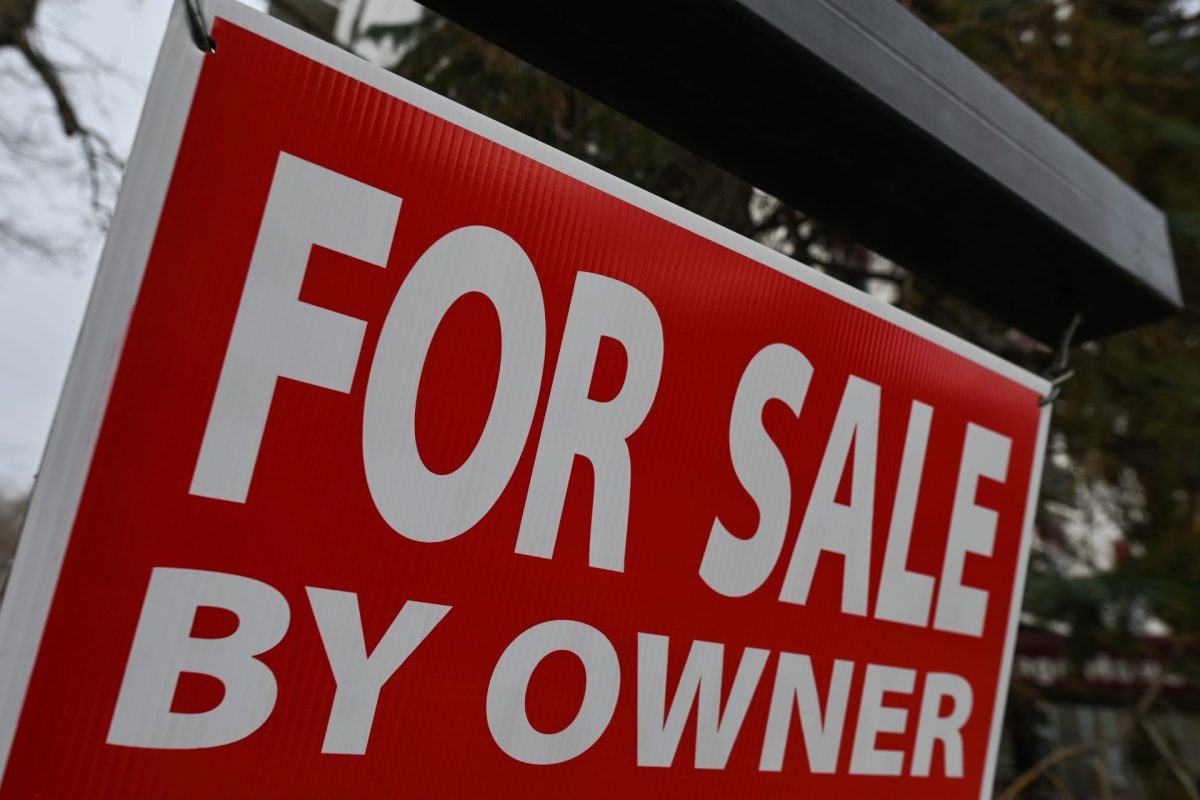

FOR SALE sign seen outside a house in the center of Edmonton. On Thursday, May 5, 2022, in Edmonton, Alberta, Canada. (Photo by Artur Widak/NurPhoto via Getty Images)
The California Association of Realtors is apologizing for its role in driving policies that furthered racial segregation throughout the state by a process known as “redlining,” over 50 years after funding a proposition that overturned the state’s first fair housing law, ABC 30 reports.
On Friday, leaders from several real estate groups discussed the next steps after the apology was issued last week.
The association, having partnered with nonprofits focused on expanding homeownership in communities of color, is now backing a new bill that would overturn a state law that makes it more difficult for the state to build affordable housing, according to the outlet.
The proposed legislation would also require real estate agents to undergo implicit bias training. The chairman of the National Association of Real Estate Brokers calling it “a very long time coming.”
“This has been a very long time coming,” said Derrick Luckett, chairman of the National Association of Real Estate Brokers. “The association has expressed a commitment to expanding intergenerational wealth among Black households.”
The California Association of Realtors, which currently represents nearly 200,000 realtors statewide, was amongst many groups of its kind that supported redlining – or creating barriers to affordable housing projects – a practice that has segregated cities across the country throughout the 20th century.
In the 1930s, the federal government, by way of the Home Owners’ Loan Corporation, created maps that graded parts of cities based on their creditworthiness, which we know now to be what’s called redlining.
The practice pushed racial segregation as well as income inequality by blocking residents living in particular neighborhoods from receiving loans and mortgages.
In 1950, the California Association of Realtors, then known as the California Real Estate Association, funded a campaign that added an amendment to the state constitution, which forced the government to to get voter approval before spending public money on affordable housing.
However, the group has since supported repealing the amendment in recent decades.
In 1964, the association paid for a proposition that would invalidate the Rumford Act, a law aimed at protecting people of color from housing discrimination when searching for a home.
But it wasn’t until the killings of George Floyd, Breonna Taylor and Ahmaud Arbery in 2020 when the National Association of Realtors issued an apology for its role in the country’s housing discrimination.
Cities including St. Louis and Minneapolis have seen their real estate groups follow suit in recent years.
Meanwhile, on Friday, the president of the California Association of Relators, Otto Catrina, noted that it isn’t the first time the group issued an apology on the matter, with the former president having done so in its magazine last year, per ABC 30.
“For many of our members, this apology reflects the organization that we are today and are continuing to work to foster inclusion and belonging for all our members and our communities,” Catrina said.
Such discriminatory housing policies have undoubtedly impacted Black Americans nationwide.
Homeownership for Black Americans is 43 percent compared to 72 percent for white Americans, according to the National Association of Realtors.
Black homeowners also reported the value of their home appraisals increase when they remove any signs that a Black families lives there, the outlet reports.
A spokesperson for the housing advocacy group California YIMBY said it’s crucial for the association to clarify what its next steps will be in addressing the effects of discriminatory housing policies it previously supported.
“An apology is always backward-looking, so it’s important to try to correct the damage you did,” Matt Lewis, spokesperson for housing advocacy group California YIMBY, said. “But the next step is, so what are you going to do about it?”